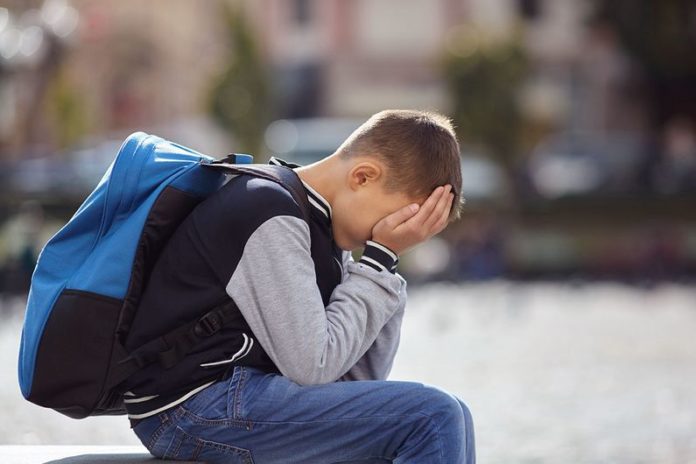Students who experience violence at a high school are more likely to report psycho-social and academic impairment later. The study conducted by the Université de Montréal with colleagues in Belgium and France suggests that being a bystander of high-school violence can be as damaging to mental health.
During the study, scientists examined a stratified cohort of nearly 4,000 Quebec high-school students. They statistically analyzed the association between witnessing school violence in Grade 8 and subsequent antisocial behavior, emotional distress, and academic adjustment in Grade 10.
Moreover, scientists compared the data of students who witness violence in school and students who witness violence directly over the long term.
Michel Janosz of UdeM’s School of Psycho-Education said, “Previous studies suspected that adolescents who witness violence might be at risk of experiencing post-traumatic psychological problems, but they could not rule out whether the students showing bystander effects were not already having such problems beforehand.”
“The Quebec cohort was ideal because we had psychological information on the students before witnessing the violence and this really makes a big difference scientifically in terms of rigor. There was less interference from confounders and other plausible explanations. Plus, we were able to follow up with the students a couple of years later – a huge advantage.”
Co-author Linda Pagani, also a professor at the School of Psycho-Education said, “There were several take-home messages. First, witnessing school violence in Grade 8 predicted later impairment at Grade 10. Second, bystander effects were very similar to being victimized by violence directly.”
Janosz said, “Most students reported witnessing violence. It is clear that approaches to prevention and intervention should include witnesses as well as victims and perpetrators and target all forms of school violence. Of course, actively supportive family and community relationships represent important resources for facilitating coping strategies after having been exposed to events associated that inflict psychological or physical harm. These also prevent emotional desensitization to violence which also contributes to aggressive behavior in youth.”
“We believe that after-violence intervention programs would benefit from a population-based approach that encourages and normalizes concern for others and intolerance for disrespect. More importantly, schools should seek to empower bystander students who are not directly involved in acts of school violence, rather than giving them messages to stay uninvolved. Schools need to understand that discouraging student involvement can be interpreted by youth as promoting self-centeredness at the expense of community well-being. Nobody should feel powerless.”
The study is published today in the Journal of Epidemiology and Community Health.
